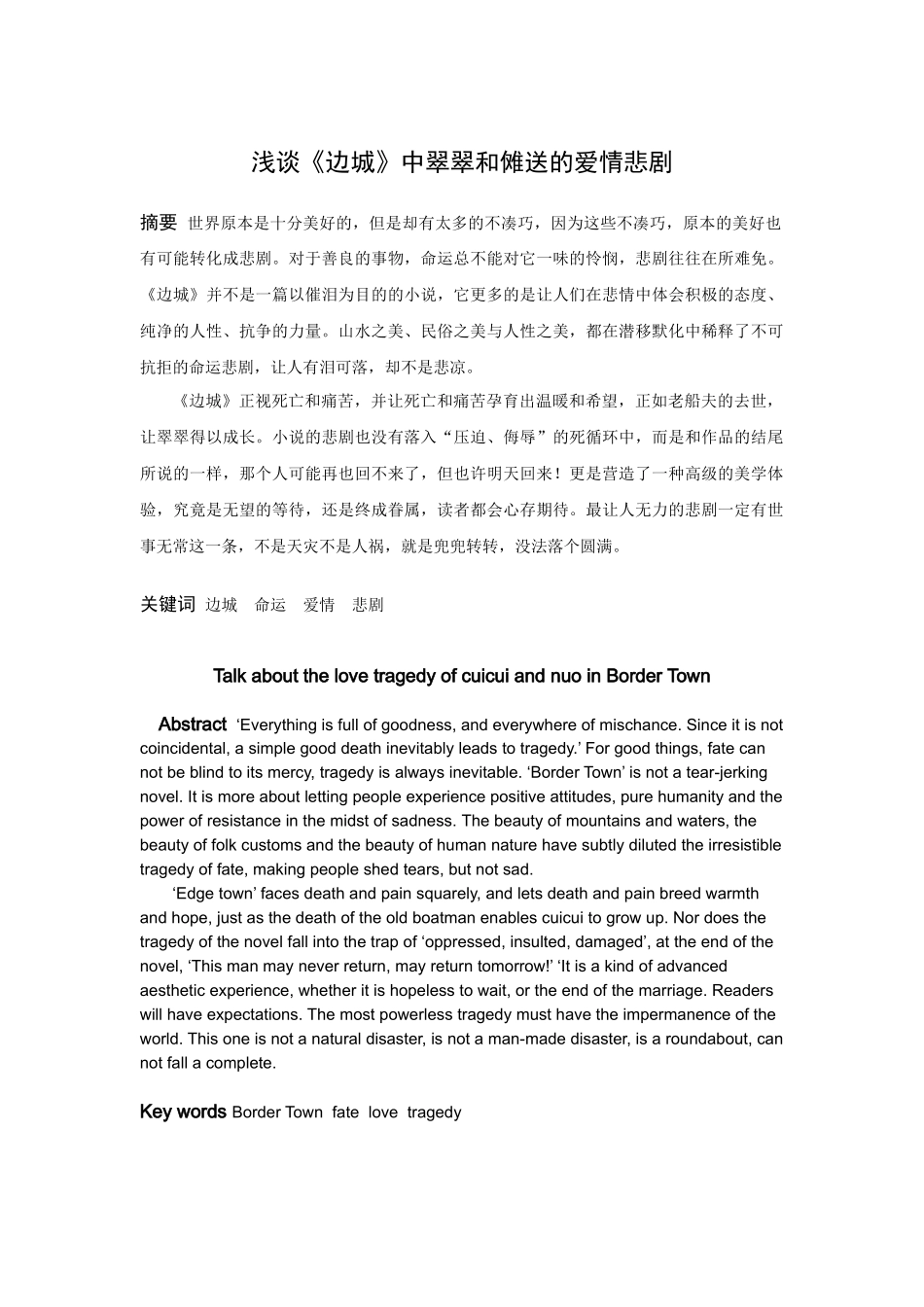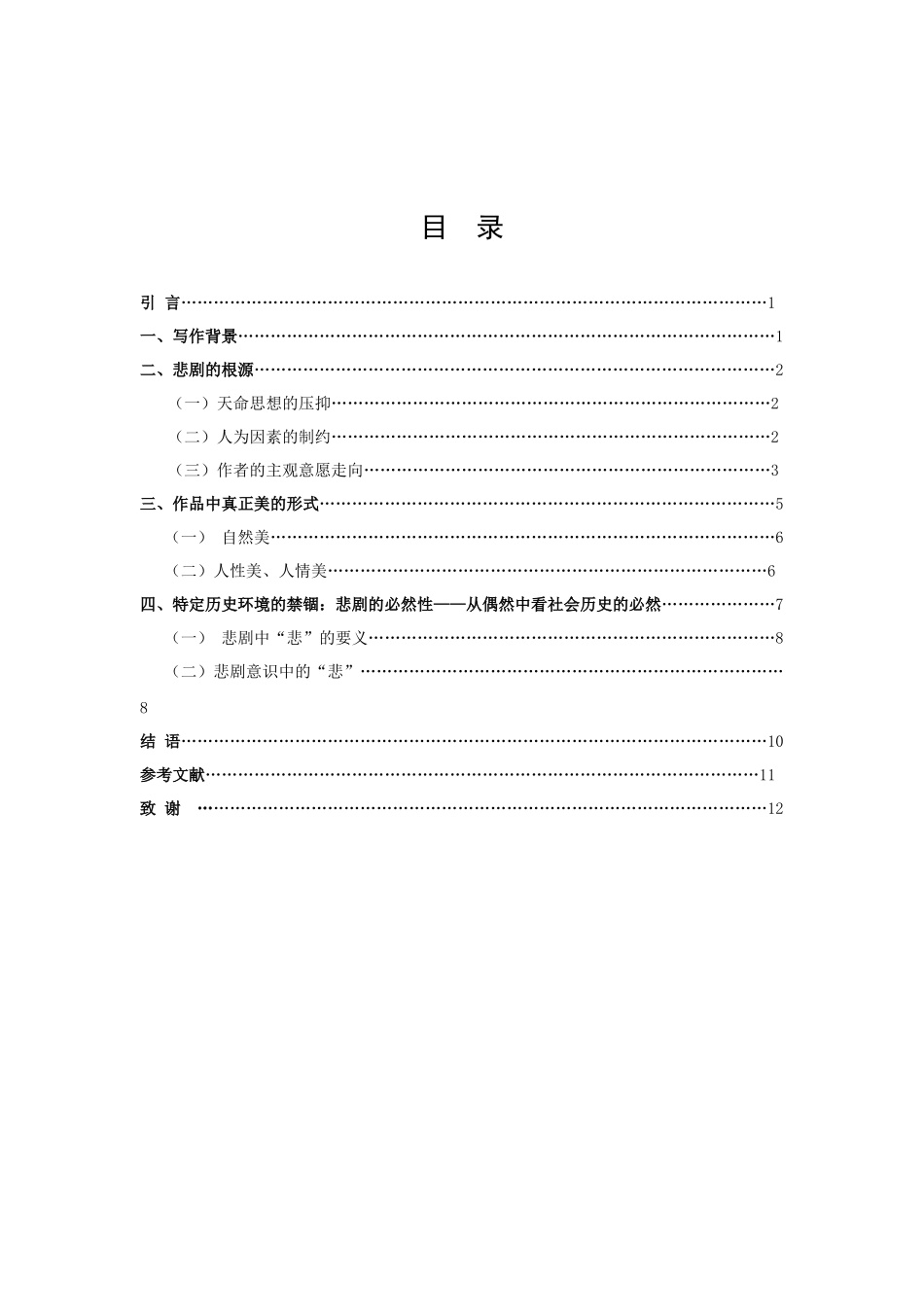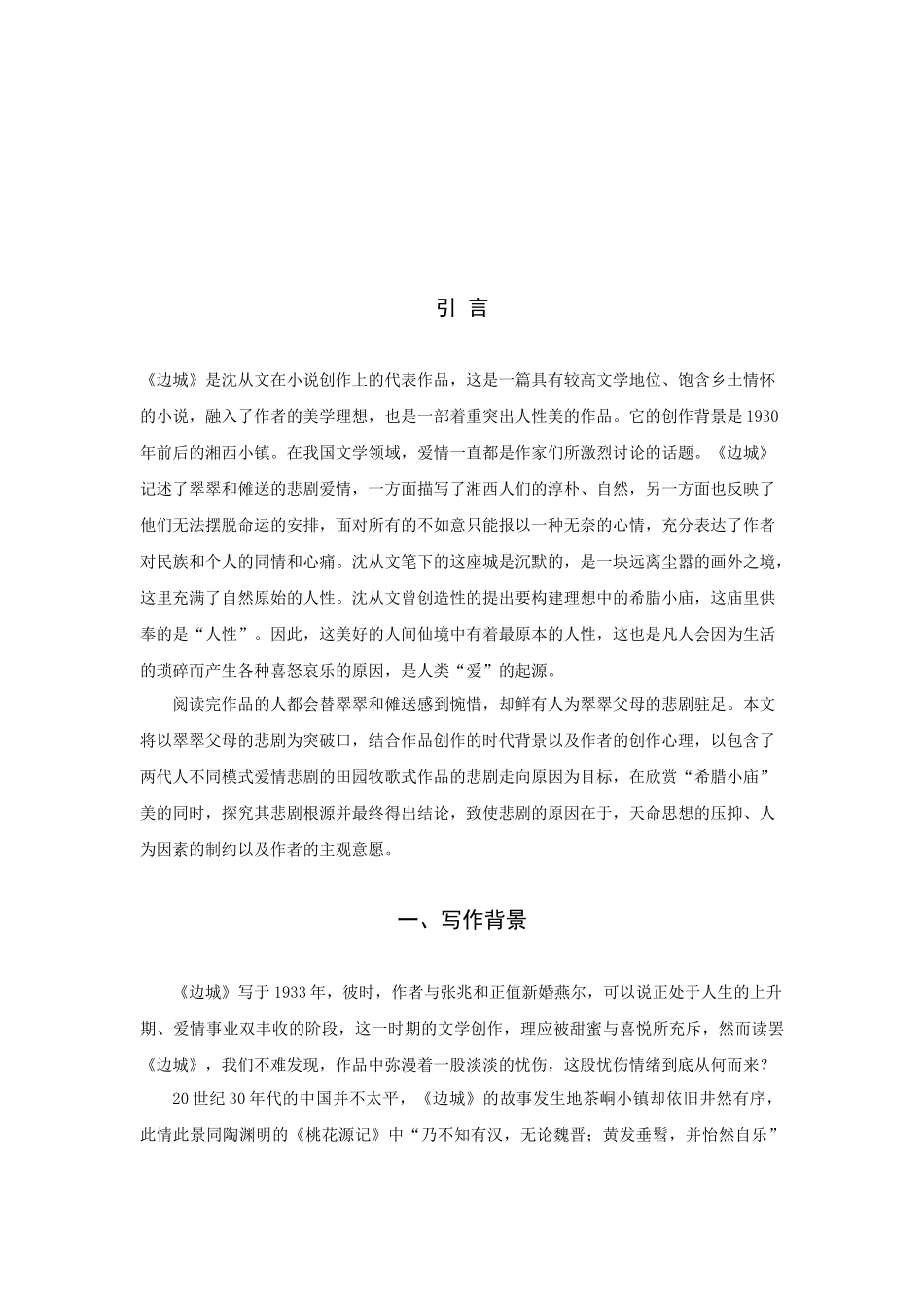浅谈《边城》中翠翠和傩送的爱情悲剧摘要 世界原本是十分美好的,但是却有太多的不凑巧,因为这些不凑巧,原本的美好也有可能转化成悲剧。对于善良的事物,命运总不能对它一味的怜悯,悲剧往往在所难免。《边城》并不是一篇以催泪为目的的小说,它更多的是让人们在悲情中体会积极的态度、纯净的人性、抗争的力量。山水之美、民俗之美与人性之美,都在潜移默化中稀释了不可抗拒的命运悲剧,让人有泪可落,却不是悲凉。《边城》正视死亡和痛苦,并让死亡和痛苦孕育出温暖和希望,正如老船夫的去世,让翠翠得以成长。小说的悲剧也没有落入“压迫、侮辱”的死循环中,而是和作品的结尾所说的一样,那个人可能再也回不来了,但也许明天回来!更是营造了一种高级的美学体验,究竟是无望的等待,还是终成眷属,读者都会心存期待。最让人无力的悲剧一定有世事无常这一条,不是天灾不是人祸,就是兜兜转转,没法落个圆满。关键词 边城 命运 爱情 悲剧Talk about the love tragedy of cuicui and nuo in Border TownAbstract ‘Everything is full of goodness, and everywhere of mischance. Since it is not coincidental, a simple good death inevitably leads to tragedy.’ For good things, fate can not be blind to its mercy, tragedy is always inevitable. ‘Border Town’ is not a tear-jerking novel. It is more about letting people experience positive attitudes, pure humanity and the power of resistance in the midst of sadness. The beauty of mountains and waters, the beauty of folk customs and the beauty of human nature have subtly diluted the irresistible tragedy of fate, making people shed tears, but not sad. ‘Edge town’ faces death and pain squarely, and lets death and pain breed warmth and hope, just as the death of the old boatman enables cuicui to grow up. Nor does the tragedy of the novel fall into the trap of ‘oppressed, insulted, damaged’, at the end of the novel, ‘This man may never return, may return tomorrow!’ ‘It is a kind of advanced aesthetic experience, whethe...


